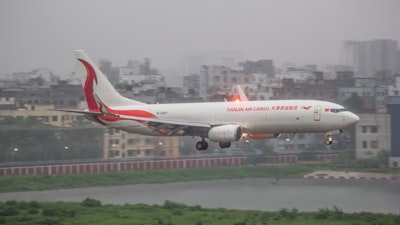Recurrent Aircraft Defects: A Wake-Up Call for Indian Aviation Safety
India's aviation industry has soared in recent years, but a troubling reality now threatens its upward trajectory: recurring aircraft defects. The recent statement from the country's aviation regulator, highlighting the reappearance of multiple defects on commercial aircraft, is more than a technical red flag—it underscores deep-rooted accountability and safety challenges that could impact millions of passengers and the nation’s global standing.
The Hidden Risks of Recurring Defects
Reappearing defects are not just isolated incidents; they suggest systemic gaps in both airline maintenance protocols and regulatory oversight. When issues previously marked as “fixed” reappear, it raises urgent questions:
- Are airlines prioritizing quick fixes over comprehensive repairs?
- Is there a culture of “patch repairs” due to cost-cutting or fleet pressure?
- Is regulatory follow-up rigorous enough, or are repeated lapses being overlooked?
Table: Pros & Cons of Increased Regulatory Scrutiny
| Pros | Cons |
|---|---|
| Elevated passenger safety and trust | Increased operational costs for airlines |
| Better compliance and global credibility | Potential flight delays due to stricter checks |
| Incentive for airlines to adopt best practices | Pushback from industry lobbying groups |
Not Just a Technical Issue: A Societal Dilemma
India’s growth as a major aviation market brings with it greater scrutiny. Short-term cost savings by skipping robust fixes may lead to high long-term costs: loss of consumer trust, reputational damage, and even human tragedy. The dilemma pits rapid expansion against the uncompromising standards required for genuine safety.
“As India becomes one of the world’s fastest-growing aviation hubs, even a single safety lapse can undermine hundreds of success stories.”
Why Are These Defects Reappearing?
Experts point to several factors:
- Aging fleets and prolonged use without adequate modernization.
- Pressure to maximize aircraft utilization, pushing maintenance windows to the limit.
- Inconsistent documentation—issues marked as resolved but lacking real verification.
- Shortage of skilled engineers, especially with airline growth outpacing talent supply.
A Call to Action
To secure safe skies, India must move beyond reactive measures:
- Demand transparent reporting and stronger root-cause analysis of defects.
- Foster a “safety-first” culture among airlines, not just compliance for compliance’s sake.
- Align with global aviation leaders on best-in-class maintenance, digital tracking, and third-party audits.
Looking Forward
The repeated emergence of aircraft defects is not just an operational hiccup; it’s a litmus test for India’s seriousness about aviation safety and global aspirations. Regulators, airlines, and passengers must all recognize: in aviation, trust is built one safe flight at a time—and lost just as quickly.
This article was inspired by the headline: 'India aviation regulator says multiple defects reappearing on aircraft'.

Comments
No comments yet. Be the first to comment!